This is a photographic post to complete my catalogue of nudibranchs, and similar animals, seen in the waters of Fiji a few months ago. Above is a pair of Chromodoris lochi, a repeat species from the earlier post, but irresistible.
All the nudibranchs here are very small animals, a centimeter or so long in some cases, a couple of centimeters in others.
Above is Roboastra gracilis. According to Bill Rudman, Roboastra contains some predatory species who hunt down other nudibranchs.
Nembrotha lineolata, I think (there seems to be color variation in this species). This is from the same family as the second, Nembrothinae.* They, in turn, are relatives of this species, Polycera capensis, from my Nelson Bay photos.
I think this might be a Janolus, though I don’t know the species. This genus contains some of the most spectacular animals and is the subject of many of the most astounding nudibranch photos (just google ‘Janolus‘). The orange strand to the left, on the tiny tree of seaweed, may be the animal’s eggs, or those of another nudibranch.
Flabellina rubrolineata. A great traveller: from the Red Sea to Australia and Fiji.
Finally, a vertebrate from those Fiji dives:
___________________
Notes: These shots did have added light. The fish is a Tomato Clownfish.
* Another interesting photo of the hermaphroditic Nembrotha is here.
Mick Saliwon, co-owner with Lyn Cleary of the Ocean Trek dive boat we’ve used for two of our Octopolis trips, had a serious accident last week while helping someone with their boat, and is in hospital. Mick and Lyn have been very generous to our octo group. Best wishes from Metazoan to Mick.
If you write a comment from this front page, the letters will look very small as you type. Write from here to avoid the problem.

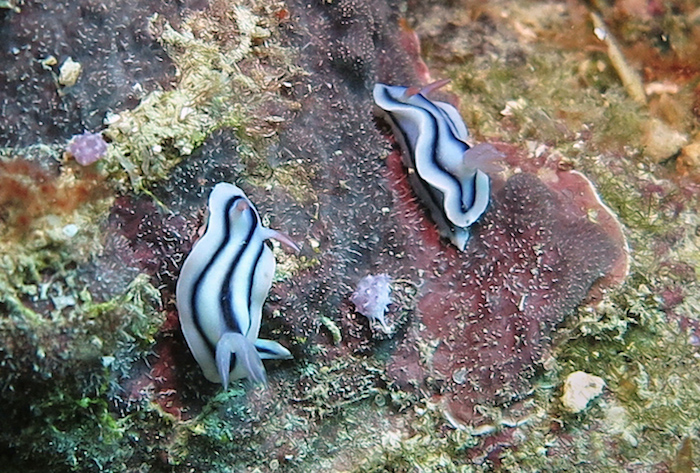
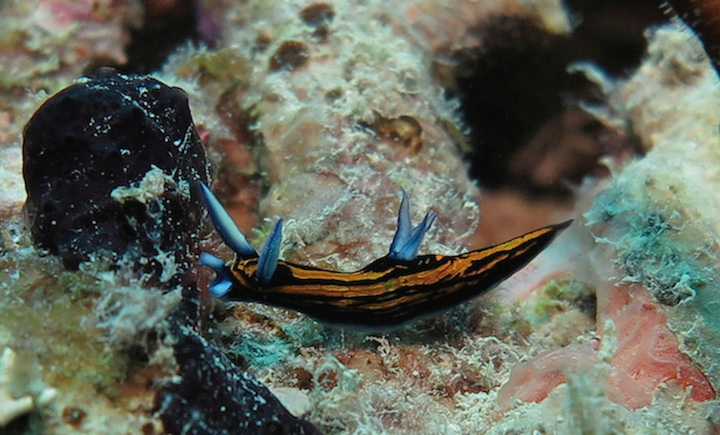
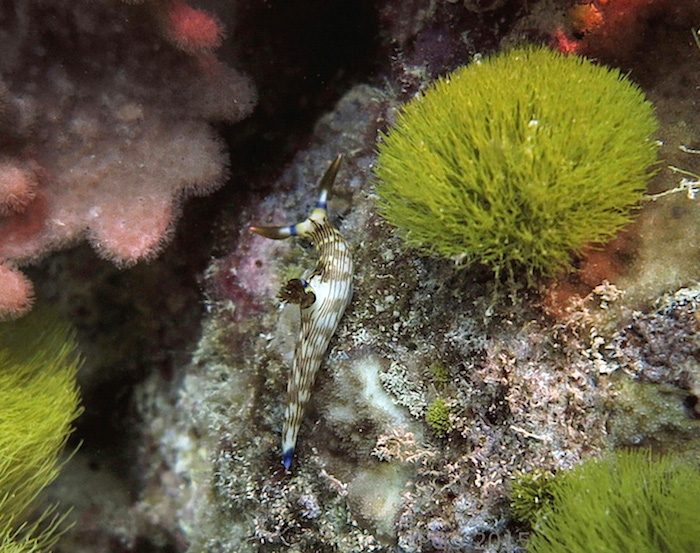
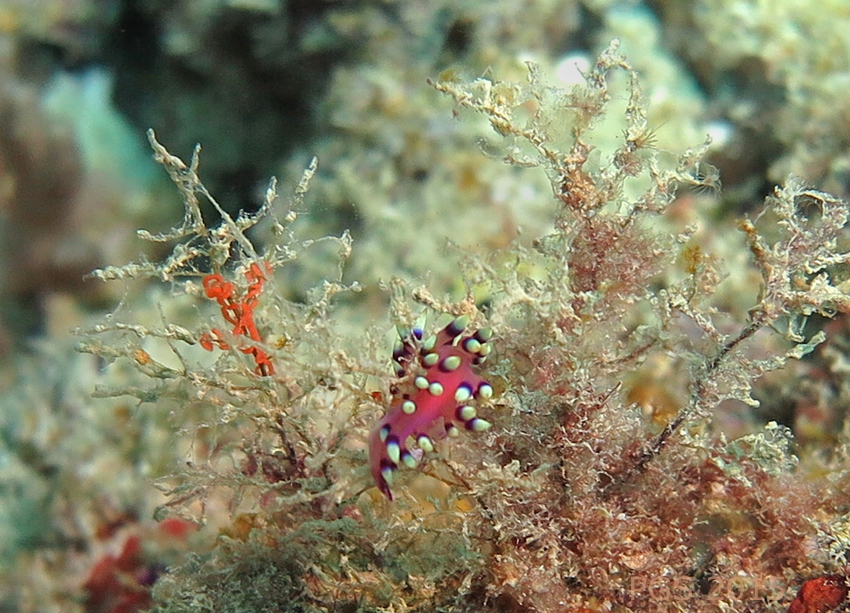
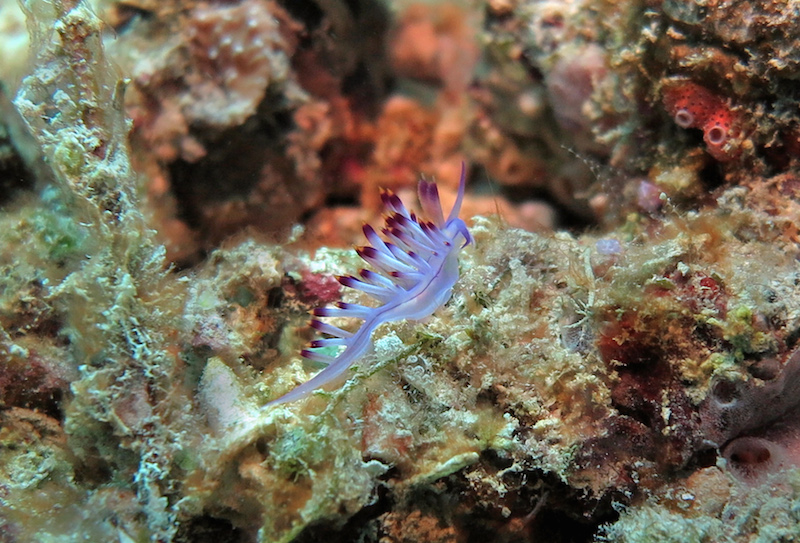
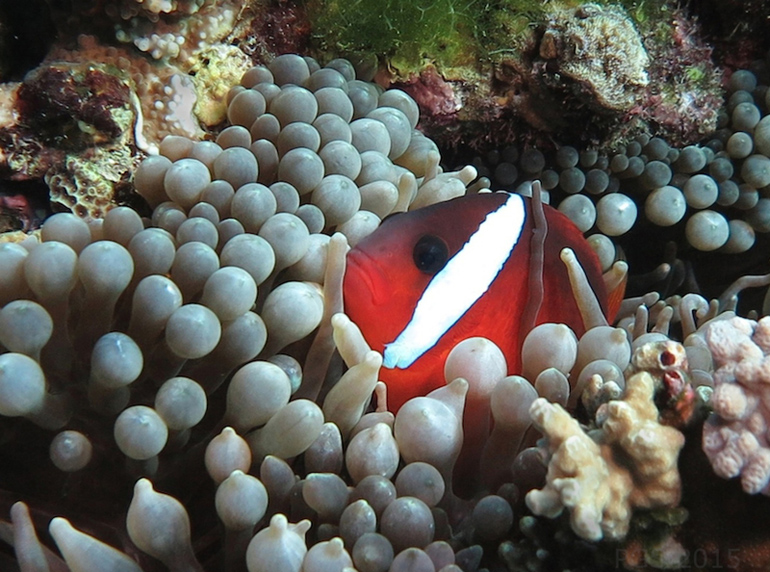
Stunning nudibranchs! I will have to add Fiji to my list for more than soft coral and sharks.
The coral is indeed amazing. The area we dived, Bligh Waters, seemed to have been overfished. Not a lot of sharks for you to wallop. But I’d certainly recommend diving there anyway.